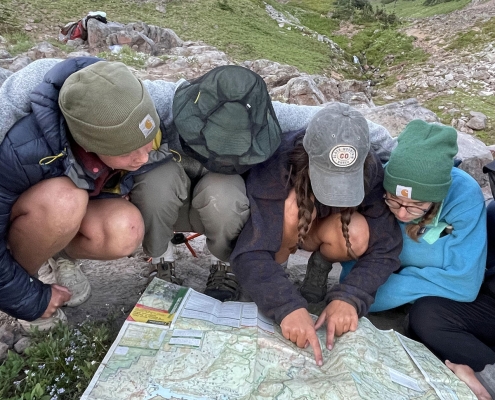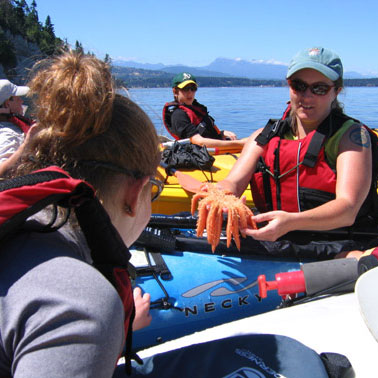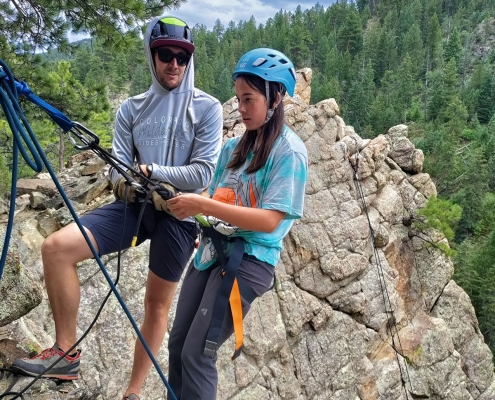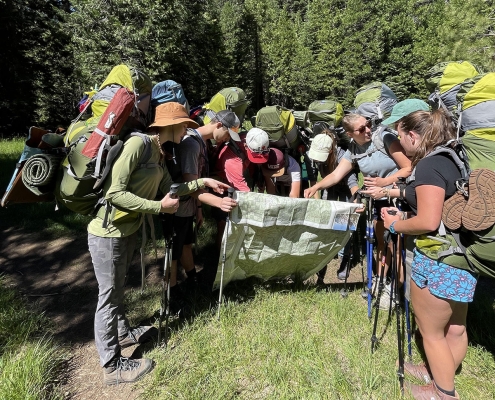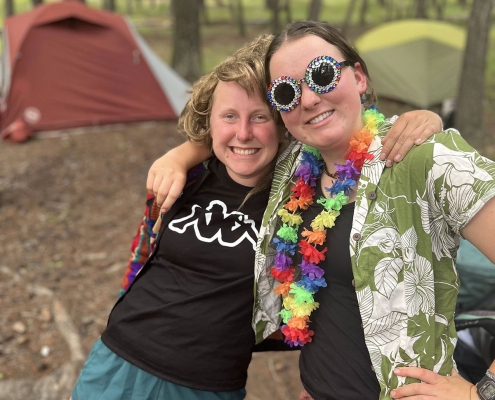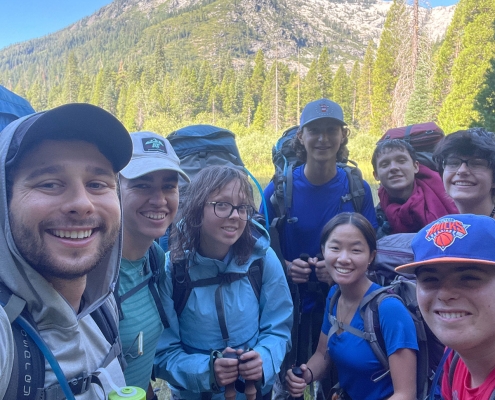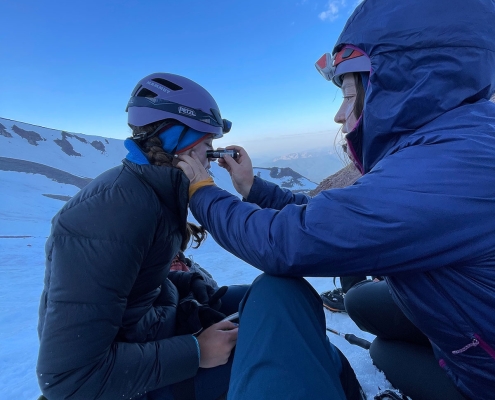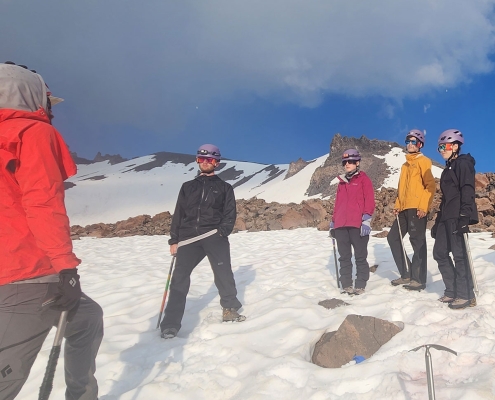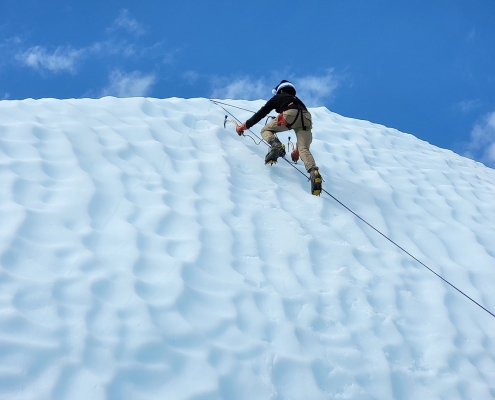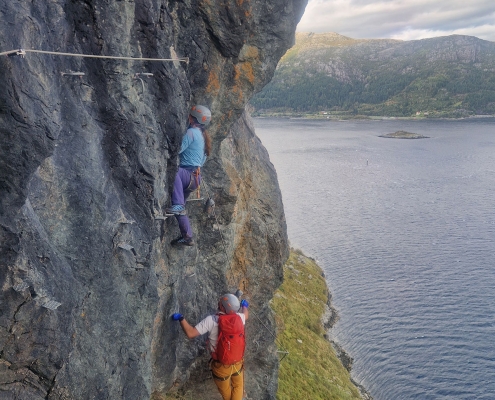How Adventure Treks prioritizes safety, communication, and personal growth on trip
Welcome back to our Spring Series for enrolled Adventure Treks families! This is the second of three blogs and webinars designed to help your family feel confident and excited as summer 2025 approaches.
Today’s installment focuses on some of the most important elements of the Adventure Treks experience: How we manage risk and safety, what communication looks like throughout the summer, and how we empower students to grow in independence and resilience.
We suggest watching the video above first, and then going through the info below to make sure you got all of the important stuff!
Did you see our first installment? Click here to read the blog and watch the video!
Risk management is the foundation upon which everything else is built
At Adventure Treks, risk management underlines everything we do. While no one can guarantee total safety—whether in the outdoors, at school, or in sports—our goal is to teach young people how to identify, assess, and respond to risks thoughtfully and confidently.
We believe in giving students the chance to take age-appropriate, reasonable risks under the guidance of exceptional mentors. This is how teens build independence, develop critical thinking skills, and grow into capable young adults.
If you’re interested in diving deeper into the science behind this approach, we highly recommend the book 10 to 25: The Science of Motivating Young People by Dr. David Yeager. His work affirms that taking on challenges, with support from adult mentors, is a vital part of youth development.
Building confidence and community
The revelation of “I’m capable of doing hard things” is a beautiful byproduct of working through challenges (and not having parents or other adults “fix everything” for them). Students at Adventure Treks face physical, social, and emotional challenges, and with the support of the caring community they’ve built around them, they develop confidence, grit, and a growth mindset… they realize they can do hard things!
Students will also learn a concept we call expedition mentality: the idea that you’re part of something bigger than yourself. This mindset fosters teamwork, generosity, and responsibility. Every student plays a role in helping the group succeed—from leading the group during a hike to washing dishes to publicly celebrating others’ successes—and this shared purpose creates deep, lasting bonds and the ability to see the big picture.
Our instructors and their training
Our staff are the heart of our program, and we are proud to have the highest student-to-staff ratios in the industry: 4 students for every 1 instructor. (The industry average is 6:1.)
Here’s what sets our instructors apart:
- All are wilderness first responder certified (or higher, like EMTs). This 80-hour course teaches folks how to manage common backcountry illnesses and injuries.
- We recruit experienced outdoor educators, not just green college students.
- Our average instructor age is 26.
- Every trip is led by a returning instructor who understands Adventure Treks’ expectations, philosophy, and culture; the average trip leader tenure is 4 years.
- 12 staff are former Adventure Treks students.
- We provide two to three weeks of hands-on, in-person staff training every summer.
- We build staff teams with an intentional mix of personalities, experience and skills, and teaching styles.
Once our staff teams are finalized, we’ll email your child’s specific group so you can read their bios online!
Trip communication from the AT office
Mutual trust and transparency are important to us. While we intentionally limit student access to technology during trips (more on that below), our goal is to maintain clear, consistent communication with families before, during, and after trips.
Pre-trip communication
- In May, we’ll upload the parent manual and daily itineraries to CampInTouch.
- We’ll send travel day info (including specific unaccompanied minor pick-ups), photo album links, and other reminders about a week before the trip.
- Also before your child’s trip starts, an instructor will give you a call to introduce themselves and answer last-minute questions.
It’s normal for students (and parents!) to feel nervous as departure nears. We encourage you to have meaningful conversations with your child in the weeks leading up:
- What are they excited for?
- What challenge are they looking forward to overcoming?
- How might this trip help them grow stronger and more confident?
- We often talk about the “warrior vs. worrier” mindset. The warrior inside your child embraces adventure, while the worrier holds onto fear of failure or discomfort. When you show confidence in your child, they’re more likely to tune into their warrior and rise to the occasion.
On-trip communication
Perhaps one of the most important parts of the Adventure Treks experience is allowing students to unplug, reset, and build independence. That’s why we limit direct contact between parents and students while they’re on trip. But don’t worry—we will keep you in the loop!
- Students call home from the airport on opening day when they meet with us. We’ll bring phones out again about midway through the trip and on the final evening for designated calls home.
- Otherwise, phones are turned off, collected by instructors, and stored throughout the trip.
- Instructors will take lots of photos and videos, which we’ll upload to your child’s trip album, along with sending trip updates by email (generally every 4-5 days).
- Instructors carry their phones and satellite devices so they can stay in touch with our 24/7 on-call director team.
If anything important comes up regarding your child, we will contact you directly. The point is that you won’t hear from us or your child daily if things are going well; try to schedule something relaxing for you while your child is gone… you deserve to do something fun, too!
Post-trip communication
On closing day, students will exchange contact info with their new friends. It’s common for them to feel a wave of emotions (like sadness or frustration) after such a meaningful experience—that’s what we call camp-sickness. You can support them by:
- Keeping them busy at home
- Encouraging them to stay in touch with new friends
- Looking through photos and asking about their favorite memories
In the weeks following your child’s trip, you’ll receive:
- A parent survey to share your feedback
- Any remaining photos and videos that weren’t uploaded during the trip
- Early enrollment offers for 2026 (the best discounts of the year!)
- And thoughtful student evaluation letter written by your child’s instructors (these are typically mailed in September)
More helpful resources
Want to dive into more details? We’ve got the resources for you!
Read these blogs:
- Advice from returning parents
- More advice from returning families: Part 1, Part 2, Part 3
- Encountering wildlife at AT
- Give your kids some credit
- AT and the battle against phone-based childhoods
- The power of experiencing awe in the outdoors
- Mentoring young people in the outdoors
- The difference between hard and bad
And get ready for an AMAZING summer!
We hope our spring series blogs and videos have been helpful so far, and that this week’s update gives you more insight into how we approach risk, communication, and personal growth at Adventure Treks.
Keep an eye on your inbox for updates in the coming weeks, including the parent manual, itinerary, and additional trip resources. As always, don’t hesitate to reach out—we’re here to support your family!

